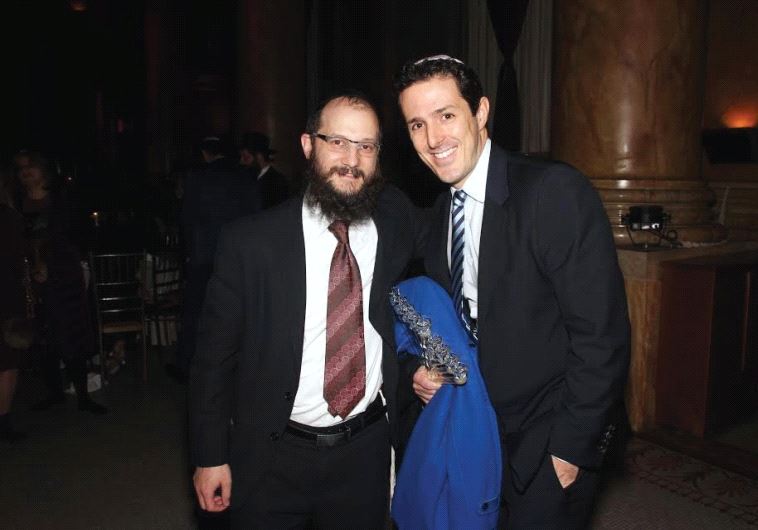Grapevine: Scotland the brave
Of all the immigrant groups in Israel, one doesn’t hear too much about the Scots, although there are quite a few of them in the country.
 BELEV ECHAD founder Rabbi Uriel Vigler (left) and Belev Echad Gala Dinner chairman Gabriel Plotkin.(photo credit: FAY GOLDSTEIN)
BELEV ECHAD founder Rabbi Uriel Vigler (left) and Belev Echad Gala Dinner chairman Gabriel Plotkin.(photo credit: FAY GOLDSTEIN)